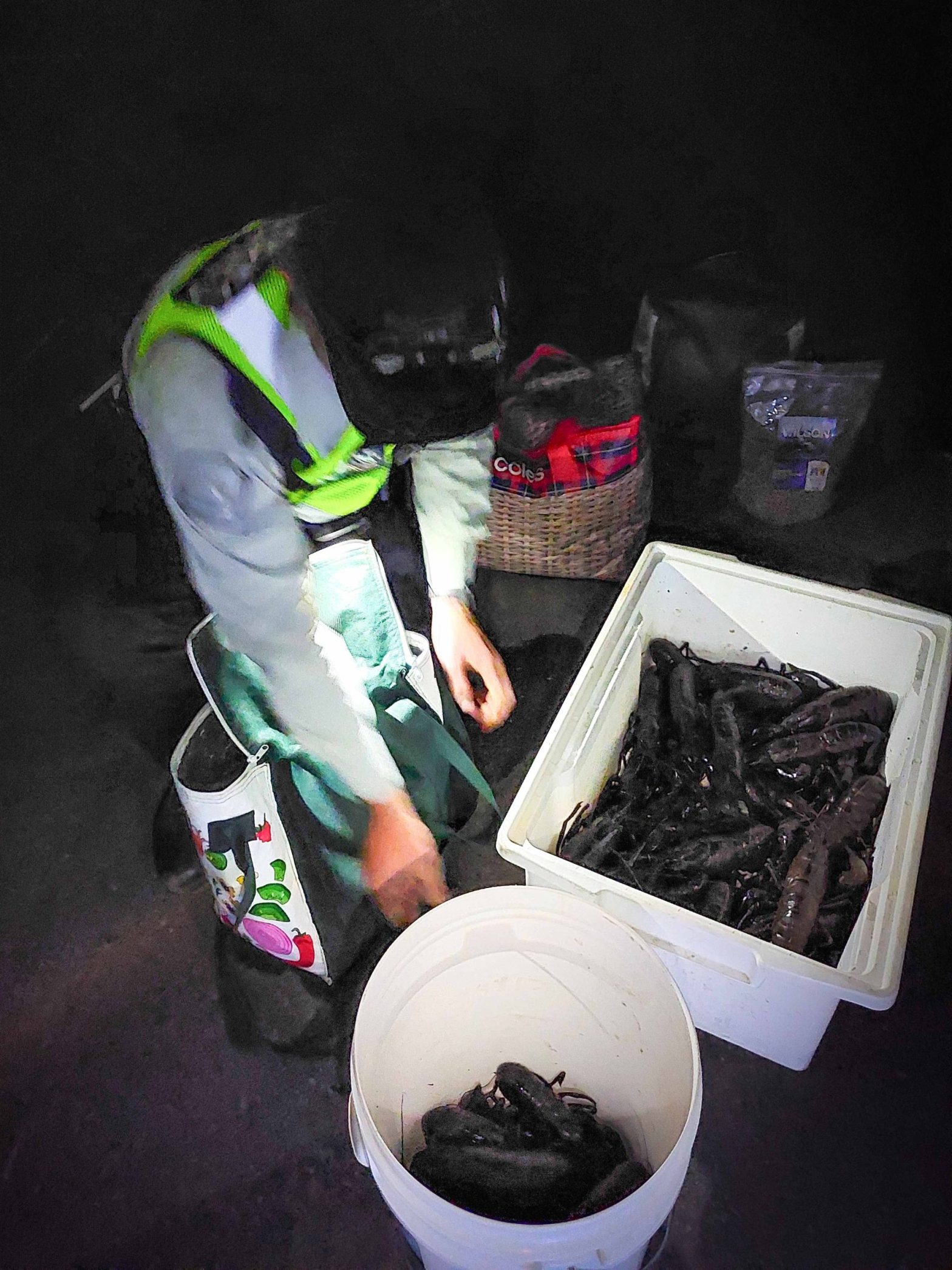Hundreds of marron seized in operation

A DPIRD Fisheries officer with some of the marron seized in the compliance operation. Picture supplied.
A total of 285 marron have been seized and up to 13 people are facing prosecution after a Department of Primary Industries and Regional Development (DPIRD) operation targeting out-of-season fishing in the South West.
The fine for out-of-season fishing for marron can be up to $5,000 plus an additional mandatory penalty of $50 for each illegally obtained marron.
This year, the open season for recreational marron fishing runs for four weeks from 12 noon on 8 January to 12 noon on 5 February.
Fishing for, including setting marron fishing gear, outside the season is prohibited.
Transporting marron outside of the season can only occur if there’s an accompanying valid receipt from a licenced commercial facility.
DPIRD’s operation ran over three nights in December and offenders were apprehended by Fisheries and Marine Officers near Collie and Harvey.
The fishers involved in catching or being in possession of marron included a man and a woman from Collie, two men from Seville Grove, four men from Koondoola, four men from Narrogin and one man from Beverley.
DPIRD Director Regional Compliance South Noel Chambers said the rules were in place to help protect vulnerable breeding populations so the WA community would have marron to fish for in the future.
“Marron is a highly prized freshwater delicacy; however, its habitat is under threat, and it is important that fishers abide by the current management arrangements to ensure the survival of this endemic species,” Mr Chambers said.
“If you’re aware of anyone who may be fishing out of season for marron, call FishWatch on 1800 815 507 and pass on what you know to the operator, or lodge your report through the online form on Crimestoppers.
“Apart from our year-round fisheries compliance patrols, we also depend on community assistance and cooperation with WA Police and water authorities to ensure the marron fishery can be managed in sustainable way.”


















